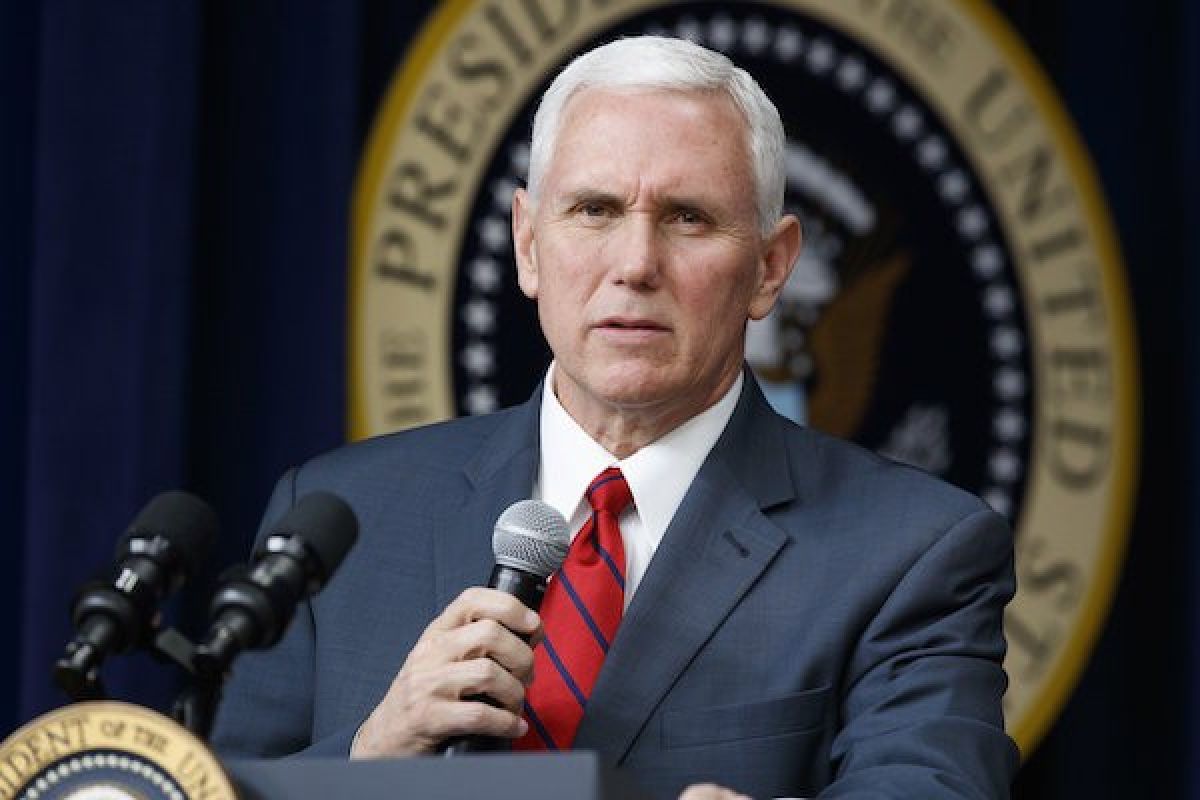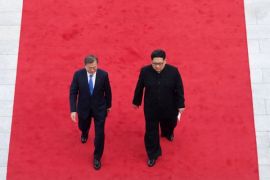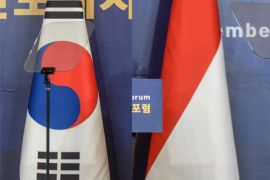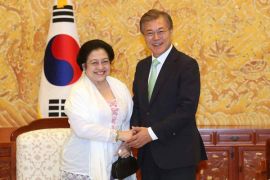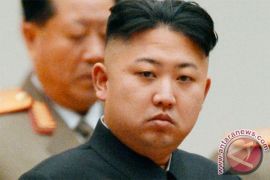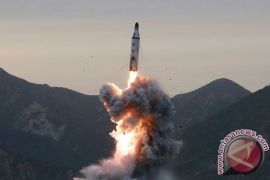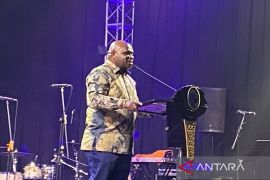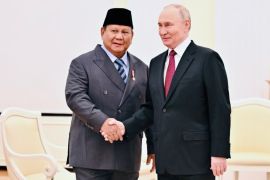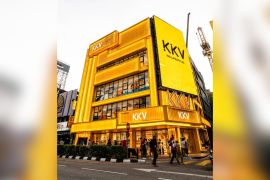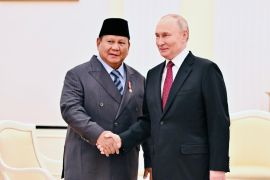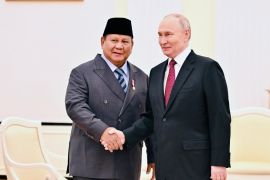All options are on the table to achieve the objectives and ensure the stability of the people of this country."Demilitarised Zone, South Korea (ANTARA News) - U.S. Vice President Mike Pence stared across the demilitarized border between North and South Korea on Monday, a day after North Koreas failed missile launch, reiterating that the U.S. "era of strategic patience" with Pyongyang was over.
Pence is on the first stop of a four-nation Asia tour intended to show Americas allies, and remind its adversaries, that the Trump administration is not turning its back on the increasingly volatile region.
The demilitarized zone (DMZ) is a heavily mined, four-km-wide (2.5-mile-wide) strip of land lined with barbed wire running across the Korean peninsula, with soldiers on both sides in a continual eyeball-to-eyeball standoff.
Pence, whose father served in the 1950-53 Korean War, said the United States would stand by its "iron-clad alliance" with South Korea and was seeking peace through strength.
"All options are on the table to achieve the objectives and ensure the stability of the people of this country," he told reporters as tinny propaganda music floated across from the North Korean side.
He said U.S. President Donald Trump has made clear he wont talk about specific military tactics.
"There was a period of strategic patience but the era of strategic patience is over," Pence said.
The United States, its allies and China are working together on a range of responses to North Koreas latest failed ballistic missile test, Trumps national security adviser said on Sunday, citing what he called an international consensus to act.
H.R. McMaster indicated that Trump was not considering military action for now, even as a nuclear-powered aircraft carrier strike group was heading for the region.
"Its time for us to undertake all actions we can, short of a military option, to try to resolve this peacefully," he said on ABCs "This Week" program. "We are working together with our allies and partners and with the Chinese leadership to develop a range of options.
"There is an international consensus now, including the Chinese leadership, that this is a situation that just cannot continue," McMaster said.
The Trump administration is focusing its North Korea strategy on tougher economic sanctions, possibly including an oil embargo, a global ban on its airline, intercepting cargo ships and punishing Chinese banks doing business with Pyongyang, Reuters reported last week, citing U.S. officials.
While Trump has employed tough rhetoric in response to North Koreas recent missile tests, the new U.S. presidents options appear limited in dealing with a challenge that has vexed his Oval Office predecessors.
Most options fall into four categories: economic sanctions, covert action, diplomatic negotiations and military force.
Pence landed in South Korea hours after the Norths failed missile launch. His visit came a day after North Korea held a military parade in its capital, Pyongyang, marking the 105th anniversary of the birth of founding father Kim Il Sung.
What appeared to be new long-range ballistic missiles were on display in the parade.
Tensions have risen as Trump takes a hard rhetorical line with North Korean leader Kim Jong Un, who has rebuffed admonitions from China and proceeded with nuclear and missile programs seen by Washington as a direct threat.
Trump acknowledged on Sunday that the softer line he had taken on Chinas management of its currency was linked to Beijings help on the North Korea issue.
"Why would I call China a currency manipulator when they are working with us on the North Korean problem? We will see what happens!" Trump said on Twitter. Trump has backed away from a campaign promise to label China in that way.
Pence said Trump was hopeful China "will take actions needed to bring about change in policy" in North Korea.
"But as the president has made very clear, either China will deal with this problem or the United States and our allies will," he said.
Trumps decision to order a cruise missile strike on a Syrian airfield this month, in response to what he said was Syrias use of chemical weapons, raised questions about his plans for reclusive North Korea.
(U.G005/C/G005/M007) 17-04-2017 16:45:15
Editor: Priyambodo RH
Copyright © ANTARA 2017
